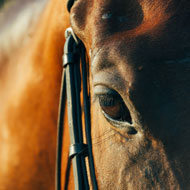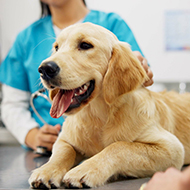
Study finds MSCs in horses fight bacterial infection
Stem cells found in horses naturally produce molecules that can fight bacterial infection, according to new research by the Roslin Institute.
The team examined mesenchymal stem cells (MSCs), which are seen in animals and humans and can differentiate into a variety of cell types.
They discovered that MSCs may be able to fight infection in two ways - by acting directly on bacteria and by regulating the activity of immune cells involved in the body’s natural defences.
The endometrium was identified as a particularly promising novel source of MSCs for clinical applications in horses - and likely in other species too.
MSCs obtained from bone marrow or adipose tissue have been used for clinical tissue regeneration in animals for more than 10 years, which scientists say assures their safe use as potential clinical antimicrobials in the future.
Lead author Dr Cristina Esteves said: “This study shows that equine MSCs may act to defend the body against bacterial infection.
"We’re excited about these results as MSCs could prove useful against antimicrobial resistance and be used as an alternative to antibiotics.”



 The CMA has invited comments on a draft survey invitation letter, as it continues its investigation into consumer experience.
The CMA has invited comments on a draft survey invitation letter, as it continues its investigation into consumer experience.